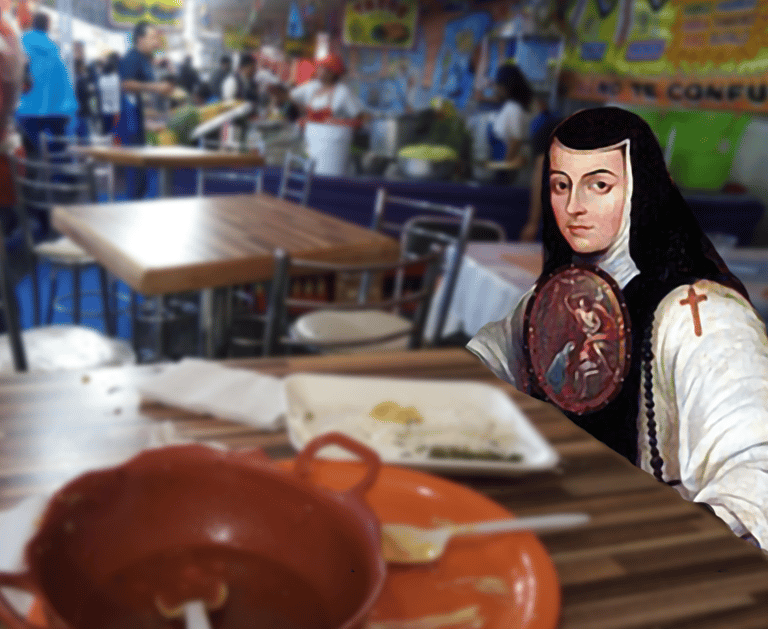Narciso y Eco: el encuentro de una voz
Fragmento de la escena XII del Divino Narciso de Sor Juana Inés de la Cruz
Narcissus and Echo: Finding One (’s) Voice
Fragment of scene 12 of the Divine Narcissus by Sor Juana Inés de la Cruz
Esta pieza se inspiró en la escena XII del auto sacramental DIVINO NARCISO de Sor Juana Inés de la Cruz, escritora mexicana del barroco. Sor Juana reescribe el mito de Narciso y Eco, haciendo de Narciso Cristo y de Eco Lucifer.
En la escena Narciso entiende que debe morir y empieza un monólogo donde refleja su angustia que se ve reforzado por sus últimas palabras repetidas por Eco. Eco ama a Narciso y lo odia a la vez por no corresponder a su amor y a través de esta interacción trata de mostrar su propio dolor.
La música de la pieza utiliza al cello como la voz de Narciso y a la soprano como la voz de Eco. El clavecín crea la atmósfera de la naturaleza donde este encuentro tiene lugar. Y los violines, la viola y el cello final personifican el personaje que la misma autora bautiza como MÚSICA.
This piece was inspired by the twelfth scene of the auto sacramental Divine Narcissus by Sor Juana Inés de la Cruz, a baroque Mexican writer. Sor Juana rewrites the myth of Narcissus and Echo, recasting Narcissus as Jesus Christ and Echo as Lucifer.
In this scene, Narcissus understands he must die and begins an anguished monologue which is then mirrored by Echo repeating the last words of each phrase. Echo both loves and hates Narcissus because her feelings for him are unrequited and attempts to convey her pain through her interactions with him.
The music in the piece is made up of a cello representing Narcissus’s voice and a soprano as the voice of Echo. The harpsichord recreates the natural (bucolic) atmosphere where the encounter occurs. The violins, viola, and final cello embody the character the author herself names MUSIC.


Nuestra traducción
Narciso: Selvas, ¿quién habéis mirado
el tiempo que habéis vivido,
que ame como yo he querido,
que quiera como yo he amado?
¿A quién, en el duradero
siglo de prolijos días,
habéis visto, selvas mías,
que muera del mal que muero?
Mirando lo que apetezco,
estoy sin poder gozarlo;
y en las ansias de lograrlo,
mortales ansias padezco.
Conozco que ella me adora
y que paga el amor mío,
pues se ríe, si me río,
y cuando yo lloro, llora.
No me puedo engañar yo,
que mi ciencia bien alcanza
propia semejanza es
quien mi pena causó.
De ella estoy enamorado;
y aunque amor me ha de matar,
me es más fácil el dejar
la vida, que no el cuidado.
Narciso: Es insufrible el tormento
Eco: tormento
Narciso: De los dolores que paso
Eco: Paso
Narciso: en rigor tan insufrible
Eco: Insufrible
Narciso: Pues en mi pena terrible
Y en el dolor de que muero,
No gozando lo que quiero
Los dos: tormento paso insufrible
Narciso: Oh cómo estará después
Eco: Pues
Narciso: maltratada Mi Hermosura,
Eco: Mi Hermosura
Narciso: De todas la más cabal
Eco: Cabal
Narciso: Pues mi pena sin igual
Me sujetó a padecer;
Pues ha ultrajado Mi Ser.
Los dos: Pues Mi Hermosura Cabal…
Narciso: Qué haya podido el amor
Eco: el Amor
Narciso: Sujetar así a Narciso,
Eco: hizo
Narciso: Y arrastrar a lo Inmortal!
Eco: Mortal
Narciso: Por el padezco este mal
Que siente mi pena fiera
Pues a Aquél que Inmortal era,
Los dos: El Amor hizo Mortal
Narciso: ¿Cómo tan fiera sujeta
Eco: Sujeta
Narciso: Aquesta pena inhumana
Eco: humana
Narciso: Mi ser divino impasible
Eco: pasible
Narciso: Mas sin duda es invencible
Del amor la fortaleza,
Pues ha puesto a mi belleza
Los dos: Sujeta, humana, pasible
Música y Él: Tormento Paso Insufrible
Pues mi Hermosura Cabal
El Amor hizo Mortal
Sujeta, Humana, Pasible.
Narcissus: Wilderness, in the time you have lived,
whom have you gazed upon
that loves as much as I have cherished,
that cherishes as much as I have loved?
Whom, wilderness of mine,
in the lasting century of
long-winded days, have you seen
who dies from the malady I die?
Gazing at what I desire,
I cannot savor it;
and in my thirst,
mortal yearnings I suffer.
I know she adores me
and pays the price of My love,
because she laughs if I laugh,
and when I cry, she cries.
I cannot fool myself,
for my science understands
that my own likeness is
who caused My pain.
With her I am in love,
and even though my love may kill me,
it is simpler to abandon
life, than her care.
Narcissus: How insufferable the torments
Echo: Torments
Narcissus: of the pain I endure
Echo: I endure
Narcissus: in truth unbearable
Echo: Unbearable
Narcissus: For in my terrible grief
and the pain of which I die,
not enjoying what I want
Echo & Narcissus: Torments I endure Unbearable
Narcissus: Oh! How will it be so
Echo: So
Narcissus: mistreated my beauty
Echo: My Beauty
Narcissus: above all
Echo: above all
Narcissus: For my incomparable grief
doomed me to suffer
for it has defiled My Being
Echo & Narcissus: So my beauty above all…
Narcissus: That this be done by love
Echo: Love
Narcissus: Narcissus surrendered
Echo: rendered
Narcissus: and dragged to the Immortal
Echo: Mortal
Narcissus: Because of him I suffer this ill
which my fierce sorrow feels,
for Him who used to be immortal,
Echo & Narcissus: Love rendered mortal
Narcissus: How fiercely it tamed
Echo: Tamed
Narcissus: this suffering, inhuman,
Echo: human
Narcissus: My being divine and unaffected
Echo: affected
Narcissus: Though indeed love is
Unconquerable by strength,
Because My Beauty has made
Echo & Narcissus: Tamed, human, affected
Music & Narcissus: Torments I endure
Unbearable,
So My Beauty above all,
Love renders mortal,
Tamed, human, affected.
Our translation
LA MEJOR DE TODAS
SOR JUANA INÉS DE LA CRUZ (1648/51- 1695)
NACIONALIDAD: Mexicana
OBSESIONES: La escritura, el conocimiento, la música
IDIOMAS EN LOS QUE ESCRIBIÓ: Español, Nahuátl
LUGARES DONDE VIVIÓ: México
ARTISTAS CON LOS QUE COINCIDIÓ: Carlos de Sigüenza y Góngora
ESCRITORES Y FILÓSOFOS QUE ADMIRÓ: Calderón de la Barca, Luis de Góngora y Argote, Plutarco, Athanasius Kircher, Nicolás de Cusa.
TEXTOS MÁS IMPORTANTES: Neptuno alegórico (arco triunfal, 1680), Divino Narciso (auto sacramental, 1689), Primero sueño (silva, 1692), la Carta atenagórica (carta filosófica, 1690) y la Respuesta a Sor Filotea de la Cruz (carta autobiográfica, 1691).


ESTE PROYECTO FUE POSIBLE GRACIAS A
Renzo Gordillo (Compositor/composer), Lucero Miranda (cantante/singer), Rodrigo Ponce Aparicio (Arreglista/arranger), José Darío Martínez Milantchi y María Miranda (translators)

